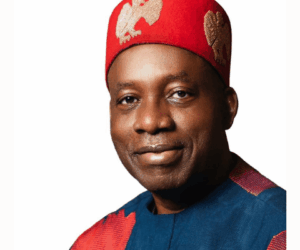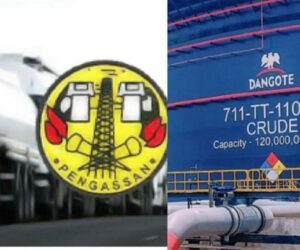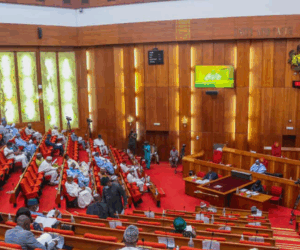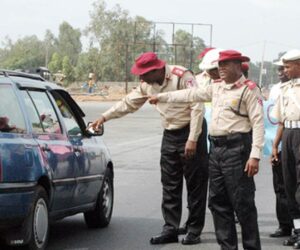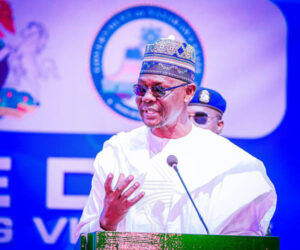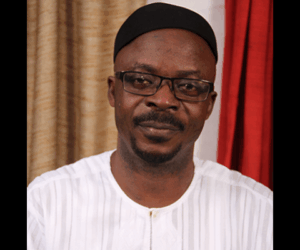1
ABUJA – President Bola Tinubu has asked regional development commissions to work side by side with state governments to address insecurity in their regions.
He gave the directive on Monday, when he met with the Minister of Regional Development and the leadership of seven development commissions at the Presidential Villa, Abuja.
He particularly tasked them on road infrastructures across the country’s geo-political zones.
Speaking to State House correspondents after the meeting, Minister of Regional Development, Abubakar Momoh, said that although the commissions are not the chief executives of their respective regions, they are mandated to complement both federal and state efforts, particularly in addressing security challenges.
He noted that existing commissions are already contributing to regional road development, adding that similar interventions are expected as newly established commissions become fully operational.
“The commissions will work side by side with state governments to address insecurity in their regions. It is part of their core mandate. They are not the chief executives of the states, but they will complement the work of other levels of government,” Momoh said.
The minister cited ongoing interventions by state governments on federal highways, such as repairs on a 10-kilometre stretch of the Benin-Warri Road in Delta State and work on the Sapele- Ogorode corridor in Edo State, as examples of proactive collaboration that should be replicated nationwide.
He attributed the poor condition of many roads to a long-standing neglect of maintenance, noting that the Federal Roads Maintenance Agency (FERMA) “for more than eight to ten years was not fully alive to its responsibilities.”
Momoh said the development commissions have adopted a four-phase master plan for rebuilding and linking economic clusters across the regions.
The first phase focused on security, followed by sustainability, while the ongoing third phase prioritises infrastructure to expand market access and drive community renewal.
Responding to a question on why some of the newly established commissions were yet to get take-off funding, the minister said it was part of the reason for their meeting with President Tinubu at the Villa.
“It is part of my address, and that is one of the reasons we met with Mr. President. And that issue is being looked into properly. I think, in a very short time you will hear from us,” Momoh added.
The North Central Development Commission (NCDC) is one of the newly established commissions yet to secure its take off funding budget.
Chairman of the NCDC board, Cosmas Akighir, confirmed to our correspondent on the sidelines of the press briefing that a total of N140 billion being the commission’s initial annual budget was yet to be released, and presents a major challenge.
“We have an envelope budget of N140 billion but nothing has been released to us. That is the challenge.
“That is part of the reason we came to engage with the president. With our engagement with the president, I am confident that something positive will happen in this regard,” Akighir said.
He disclosed that the NCDC has already developed a clear road map for various project interventions, and is working with consultants in terms of the health, education sectors, purposeful infrastructure, and some other critical areas.
Managing Director of the Niger Delta Development Commission (NDDC), Dr. Samuel Ogbuku, said the prevailing peace in the Niger Delta region is the result of community-driven development anchored on needs assessments and broad stakeholder engagement.
He noted that virtually every community in the region, including hard-to-reach riverine settlements, now hosts at least one project.
“Before we design projects, we conduct needs assessments and consult widely. You will hardly find any Niger Delta community without an ongoing project,” Ogbuku said.
He added that improved street lighting under the Operation Light Up the Niger Delta initiative has significantly enhanced security and disrupted criminal activity in previously volatile areas.
“Some communities were previously overrun by militants because they were completely dark. Today, most are illuminated, making it difficult for criminals to take over,” he said.
Ogbuku further explained that project selection now follows a participatory approach involving state governments, youth groups, traditional rulers, and other stakeholders.
He said NDDC’s budgets are discussed on a state-by-state basis during the Partners for Sustainable Development Conference to ensure shared ownership and accountability.
He added that the commission’s continued engagement with the presidency underscores the Federal Government’s commitment to sustained regional development and peacebuilding.
Also speaking, Managing Director of the North East Development Commission (NEDC), Mohammad Goni Alkali, disclosed that about four major bridges and nearly 80 roads are currently under construction, with particular focus on areas recovering from insurgency.
“For instance, in the Jere-Borno axis, once badly hit by insurgency, we have opened up about 48 kilometres of roads linking major towns. You can now move across that region in roughly 40 minutes. We will replicate this across other states to support economic recovery,” Alkali said.


